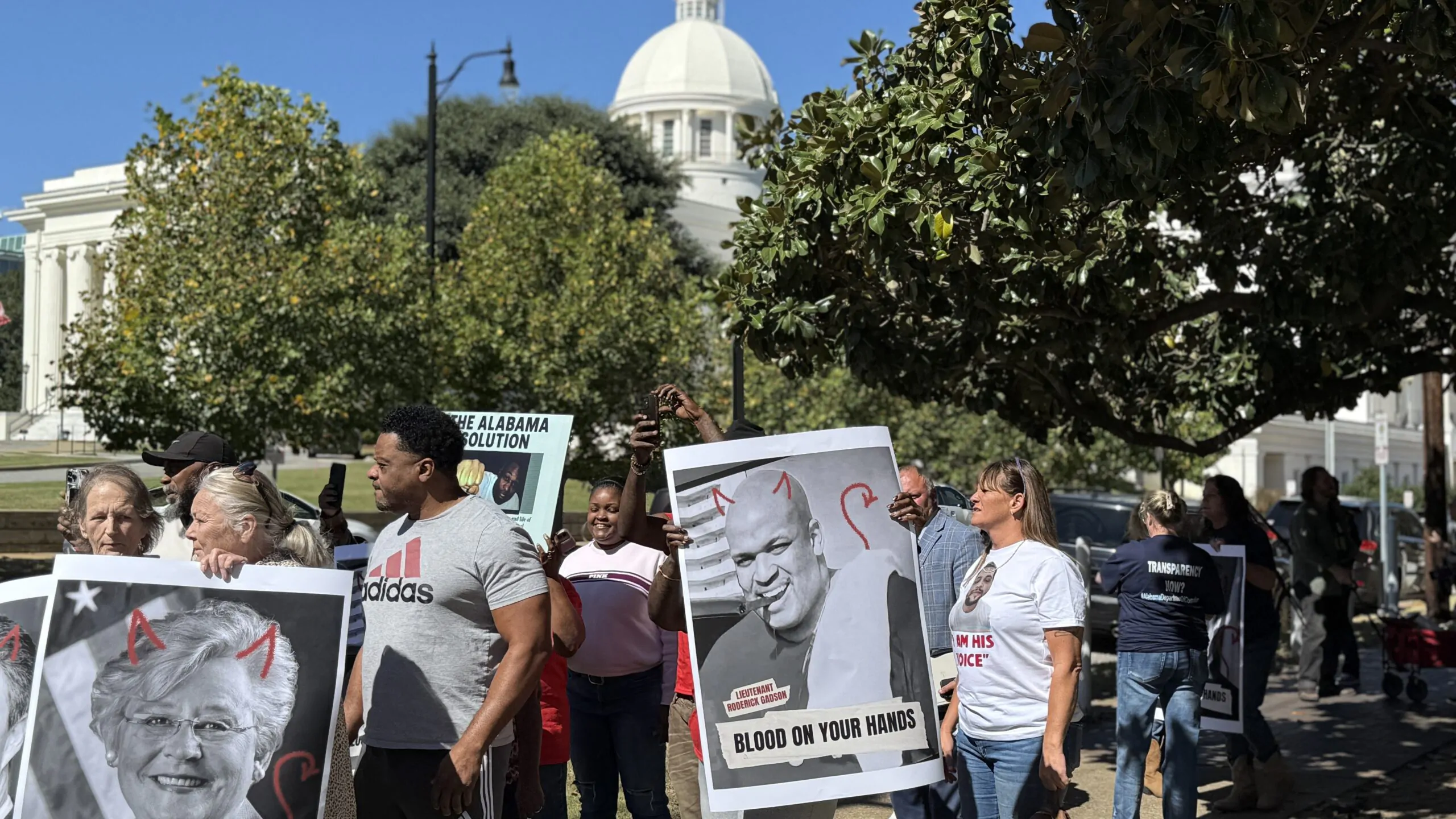So many people showed up Wednesday for the quarterly meeting of the Alabama Joint Prison Oversight Committee that lawmakers had to find a bigger committee room.
The oversized crowd was spurred in part by a bombshell HBO documentary The Alabama Solution that revealed the conditions within the walls of the Alabama Department of Corrections with a focus on the excessive force of correctional officers.
“There is a culture within the system when it comes to excessive force and civil rights abuses that are not only allowed, but enabled and encouraged,” said State Rep. Chris England, D-Tuscaloosa.
England referenced the documentary in singling out correctional officer Roderick Gadson, who the film pinpoints as the guard responsible for the death of inmate Steven Davis. ADOC has contended that guards used appropriate force in the killing of Davis, alleging that he refused to drop knives that had been fashioned from materials in the prison.
In addition to the killing of Davis, Gadson has been sued over a dozen times by incarcerated individuals for excessive use of force, but Gadson has only risen in the ranks within ADOC.
“So I first and foremost question a system that allows a person like that to be employed by the Department of Corrections, but I also question a system that allows the same person who clearly is escalating in his aggression, to go from assault to allegedly beating someone to death,” England said. “But also in that same system, the only witness to that, one of the only witnesses, also ends up dead. So any system that perpetuates that and allows it to occur to the point where people end up dying is irretrievable, irretrievably broken and needs to be fixed.”
The witness to Davis’ death, his cellmate James Sales, died of what ADOC labeled as “natural causes” after he was found bleeding for the mouth and rectum just a month before his release on a charge of third-degree burglary. The autopsy said Sales’ cause of death could not be determined, but incarcerated men said in the documentary that Sales may have been given a laced cigarette known as a “hot shot” intended to kill possible informants.
ADOC Commissioner John Hamm acknowledged the existence of a culture of corruption among correctional officers.
“The culture that you mentioned—oh, it’s there; that’s something that we’ve been working on for quite some time,” Hamm said.
Part of changing that culture, Hamm said, has been hiring people from the outside that he believes have the ability to foster that change.
England emphasized the importance of having independent investigators to respond to claims of incarcerated individuals of abuse by guards, as internalized investigations have allowed the perpetuation of abuse.
“I’ve had this conversation too many times for it not to be an inherent issue with the department’s ability to investigate or protect those who report corruption by officers within the facility,” England said. “That includes whether it be drug trafficking, contraband trafficking, or outright abuse and neglect. So if you’re telling me that the only thing available to you is completely 100 percent in house, then you can imagine how that sort of environment fosters corruption, which means also that the people who participate in it can also police it.”
One thing that ADOC has improved on under Hamm is an increase in the arrest of corrupt officers, something that England and State Rep. Matt Simpson, R-Daphne, praised Hamm for improving.The department is also beginning to alleviate some of its troubles with short staffing, with 33 percent more security staff than it had two years ago and more than 50 percent more applications in 2024 than 2023 following a pay raise for guards.



















































